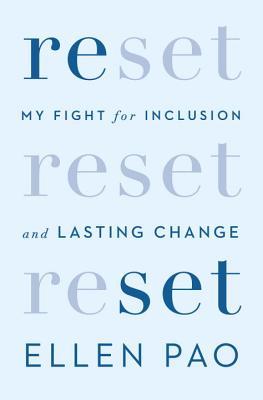Search
[...] He bought into Harvard’s great enabling social myth at face value: the notion that twenty-first-century meritocratic advancement is available to all through the procurement of a college diploma. Like any rational economic actor, he sought to procure a diploma from the finest college, with maximum efficiency. Wheeler’s crime, in the institution’s eyes, was that he saw Harvard degrees for what they are—items for purchase that cloak the owner with a manufactured prestige that, in our pretend meritocracy, automatically raises one’s market value upon the deal’s closing. The only thing propping up that value is the admissions office’s carefully maintained scarcity of supply—a luxury good ostensibly awarded to society’s most able. [...]
It’s quite apparent that Harvard administrators couldn’t merely expel Wheeler and demand he return the money when they finally noticed the obvious lies on his academic résumé. There was an urgent example to be set here, after all: enterprising young minds watching the news coverage might have reasoned that the people who run Harvard are utter morons who caught Wheeler only after a final fabrication so flamboyant that he must have wanted to get caught. With the great meritocratic ruse at last exposed in the light of day, young strivers might well give it a go themselves. Even better, forget going to Harvard—why not simply throw “BA, Harvard” on the ol’ résumé right now and start making tons of money playing financial computer games tomorrow? All Wheeler did, anyway, was spot major systemic inefficiencies and disingenuously exploit them for personal financial reward. And if Harvard is a place that would expel such a Capitalist of the Year, then it’s everyone else’s moral duty as Americans to pick up where he left off, and continue looting the place until it reaches a competitive market-clearing equilibrium: when looting a Harvard degree would no longer be worth the trouble—when Harvard, horror of horrors, becomes but one college of many!
Although educational credential inflation expands on false premises—the ideology that more education will produce more equality of opportunity, more high-tech economic performance, and more good jobs—it does provide some degree of solution to technological displacement of the middle class. Educational credential inflation helps absorb surplus labor by keeping more people out of the labor force; and if students receive a financial subsidy, either directly or in the form of low-cost (and ultimately unrepaid) loans, it acts as hidden transfer payments. In places where the welfare state is ideologically unpopular, the mythology of education supports a hidden welfare state. Add the millions of teachers in elementary, secondary, and higher education, and their administrative staffs, and the hidden Keynesianism of educational inflation may be said to virtually keep the capitalist economy afloat.
As long as the educational system can be somehow financed, it operates as hidden Keynesianism: a hidden form of transfer payments and pump-priming, the equivalent of New Deal make-work setting the unemployed to painting murals in post offices or planting trees in conservation camps, Educational expansion is virtually the only legitimately accepted form of Keynesian economic policy, because it is not overtly recognized as such. It expands under the banner of high technology and meritocracy—it is the technology that requires a more educated labor force. In a roundabout sense this is true: it is the technological displacement of labor that makes school a place of refuge from the shrinking job pool, although no one wants to recognize the fact. No matter—as long as the number of those displaced is shunted into an equal number of those expanding the population of students, the system will survive.
whoa
link this to "learn to code"-style policies & skills-biased technological change
“Meritocracy”: a word that had originated in social satire and was adopted in sincerity by an industry that could be its own best caricature. It was the operating philosophy for companies that flirted with administering IQ tests to prospective and existing employees; for startups full of men who looked strikingly similar to the CEO; for investors undisturbed by the allocation of 96 percent of venture capital to men; for billionaires who still believed they were underdogs because their wealth was bound up in equity.
I understood why the idea appealed, especially at a time of great economic insecurity, and especially for a generation that had come of age around the financial collapse. Nobody was guaranteed any future, I knew. But for those who seemed to be emerging from the wreckage victorious—namely, those of us who had secured a place in an industry that had steamrolled its way to relevance—the meritocracy narrative was a cover for lack of structural analysis. It smoothed things out. It was flattering, and exculpatory, and painful for some people to part with.
yep
[...] there’s a very interesting discourse that I quote in my book in chapter 13 by the founder of Sciences Po, and so that was right after the expanse of the commune, which was very traumatic at least for the elite, a very traumatic experience of redistribution in France. And so he has a very clear way to explain, well okay, now that we have universal suffrage, there’s a risk that basically the poor and the majority of the population will try to expropriate us, the elite. We have to display merits and our own standings so that it will be a completely crazy idea to get rid of us. So in a way it’s as if the meritocracy, the modern meritocracy discourse is invented as a way to protect the elite from democracy basically, from the universal suffrage. And he has a way to put it, which is very interesting, because at the same time Sciences Po is a private institution with very high tuition fees where it’s difficult to access if you’re not from the elite. So in the end this is the same elite in the sense that if you don’t come from a high income group it’s very difficult to access this elite, so — , but in terms of discourse it tries to present itself as based on merit.
If we are to make progress on these issues in the future, it would be good to begin by working toward greater transparency than exists today. In the United States, France, and most other countries, talk about the virtues of the national meritocratic model is seldom based on close examination of the facts. Often the purpose is to justify existing inequalities while ignoring the sometimes patent failures of the current system. In 1872, Emile Boutmy created Sciences Po with a clear mission in mind: “obliged to submit to the rule of the majority, the classes that call themselves the upper classes can preserve their political hegemony only by invoking the rights of the most capable. As traditional upper-class prerogatives crumble, the wave of democracy will encounter a second rampart, built on eminently useful talents, superiority that commands prestige, and abilities of which society cannot sanely deprive itself.” If we take this incredible statement seriously, what it clearly means is that the upper classes instinctively abandoned idleness and invented meritocracy lest universal suffrage deprive them of everything they owned. One can of course chalk this up to the political context: the Paris Commune had just been put down, and universal male suffrage had just been reestablished. Yet Boutmy’s statement has the virtue of reminding us of an essential truth: defining the meaning of inequality and justifying the position of the winners is a matter of vital importance, and one can expect to see all sorts of misrepresentations of the facts in service of the cause.
great quote that ties in nicely with http://bookmarker.dellsystem.me/note/2102
[...] it was the last time they could say what they wanted in the workplace. The last time they could behave like savages, go home feeling proud and tired at the same time. The last time they could fuck somebody in the linen closet and have it not mean anything too serious, or stay out all night and wake up on the floor. The last time they found themselves close to people from every corner of the world, of every race, proclivity, religion and background. The restaurant business is perhaps the last meritocracy -- where what we do is all that matters. [...]
[...] whence, after all, have the ideas of J.K. Rowling and her books emerged? From middle-class Britain – and not just any era in the history of middle-class Britain. Harry Potter is, irreducibly, a product of the End of History years: after the fall of the Soviet Union, and before the 2007-08 financial crash (the last book in the regular series was published in July 2007, two months before the collapse of Northern Rock). Years of smug certainty, where a vague progressivism and myths of meritocracy were allowed to conceal the still-entrenched injustices that the ruling class would weaponise once everything started to go wrong. Certain members of Rowling's generation – herself, of course, very much included – benefited immensely from this order, and their politics is now largely defined by their inability to recognise why it failed.
In fact: there is no principle that defines the wizarding world of Harry Potter more clearly than that of meritocracy. In the series, wizards constitute a ruling class, membership of which is precisely defined by merit – you're either magical, so you deserve to be a member of the wizarding class (no matter how evil you are), or you're not and thus you don't. The thrill of Harry Potter is not that of fighting evil wizards – it's that of being inducted to the ruling classes: from the comically dull, petty-bourgeois world of the Dursleys that Harry grew up in, to the Eton/Oxford substitute of Hogwarts, where every strange ritual seems alive with meaning. At age 11, the wizard child discovers something about themselves – that essentially, inherently, they are deserving, that they, unlike all the Muggles, have merit. That the whole of the magical world belongs to them.
But of course, this 'merit' – much like the merit which ostensibly fuels mobility in our own world – is suspiciously heritable: magic often runs in 'great wizarding families' (although these families can technically produce non-magical 'squibs') – often, magical merit looks like nothing other than having gone to the right school. [...]
so good!
[...] With the eras of aristocratic and plutocratic legitimacy gone (at least in their pure forms), the contemporary mythogenesis of the university degree, as Bourdieu repeatedly insisted, struggles to hide its own indifference to content and its only true mission, which is to certify ‘elites’, namely, to provide alibis to the distribution of individuals within the social division of desire.
this aligns quite nicely with Piketty's views on meritocracy (note 2102)
At the same time, we should recognise that this production of subjectivity was not simply an external imposition. Hegemony, in all its forms, operates not as an illusion, but as something that builds on the very real desires of the population. Neoliberal hegemony has played upon ideas, yearnings and drives already existing within society, mobilising and promising to fulfil those that could be aligned with its basic agenda. The worship of individual freedom, the value ascribed to hard work, freedom from the rigid work week, individual expression through work, the belief in meritocracy, the bitterness felt at corrupt politicians, unions and bureaucracies – these beliefs and desires pre-exist neoliberalism and find expression in it. Bridging the left–right divide, many people today are simply angry at what they see as others taking advantage of the system. Hatred for the rich tax evader combines easily with disgust for the poor welfare cheat; anger at the oppressive employer becomes indistinguishable from anger at all politicians. This is linked with the spread of middle-class identities and aspirations – desires for home ownership, self-reliance and entrepreneurial spirit were fostered and extended into formerly working-class social spaces. Neoliberal ideology has a grounding in lived experience and does not exist simply as an academic puzzle. Neoliberalism has become parasitical on everyday experience, and any critical analysis that misses this is bound to misrecognise the deep roots of neoliberalism in today’s society. Over the course of decades, neoliberalism has therefore come to shape not only elite opinions and beliefs, but also the normative fabric of everyday life itself. The particular interests of neoliberals have become universalised, which is to say, hegemonic. Neoliberalism constitutes our collective common sense, making us its subjects whether we believe in it or not.
For years, I’d tried to believe in the story of Kleiner as a place where we were really trying to help entrepreneurs to build awesome companies and products. I’d believed that we were this team of people working together and that we were trying to be missionaries, not mercenaries. But eventually I’d come to see all that talk as a big lie. My parents raised me to believe that the world was a meritocracy, that if you worked hard enough you could get ahead. But that wasn’t true at Kleiner. It just wasn’t fair.
im sorry but this made me laugh out loud










